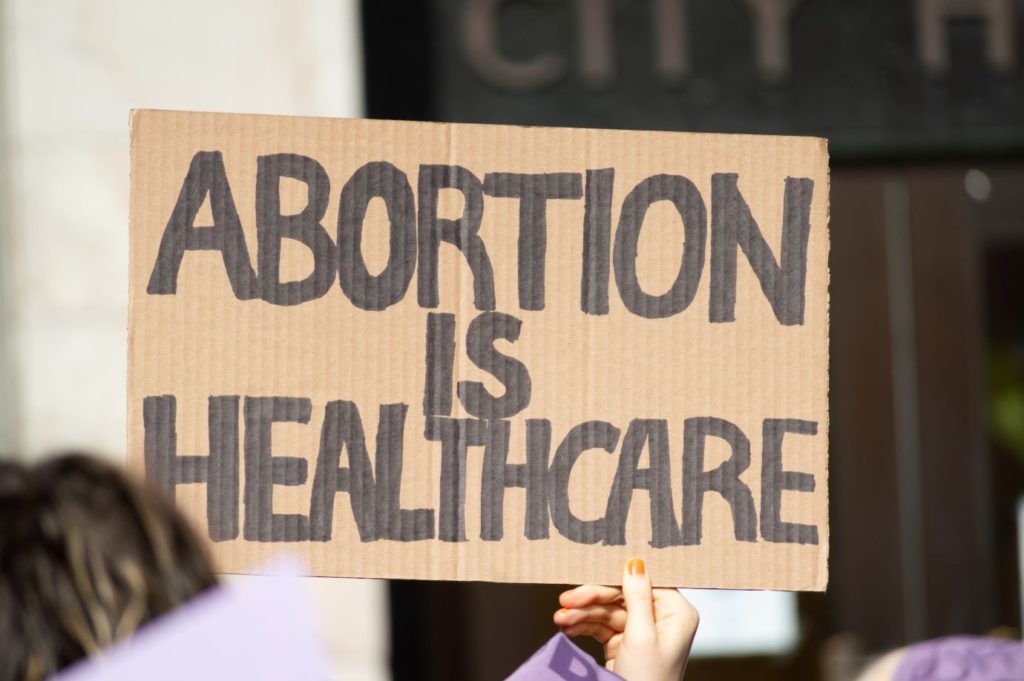We’ve watched on with horror as the United States Supreme Court overturned Roe v Wade, ending the constitutional right to abortion that has been in place for nearly 50 years.
The events taking place in the United States are rightly sending shock waves around the world, including here in Australia, where access to abortion is still a complex issue, despite the procedure being mostly decriminalised.
Abortion has been fully decriminalised in all jurisdictions except for Western Australia, where abortion remains regulated by the criminal code. South Australia finalised the decriminalisation of abortion last year.
Adrianne Walters, Associate Legal Director with the Human Rights Law Centre, warns we must remain vigilant in Australia in the wake of Roe v Wade being overturned in the United States.
“What has happened in the US has not happened overnight. Bit-by-bit, year-by-year, anti-choice politicians and campaigners, lawyers and many others have sought to erode women’s reproductive rights,” Walters said in a statement.
“We have achieved important reforms in Australia in recent times. The situation in the US shows us that we must remain vigilant, as well as doing much more to ensure that every person can access abortion care regardless of their income, where they live or who they are.”
It’s also important to remember that as recent as this year, Australia’s now former assistant minister for women attended an anti-abortion rally, addressing the crowd to confirm her anti-abortion stance. Amanda Stoker was not re-elected at the recent federal election.
Where do the states and territories stand on abortion?
MSI Australia (formerly Marie Stopes Australia) outlines how the rules around how late abortion can be accessed vary from state to state and in each territory.
In Victoria, abortion is accessible up to 24 weeks of gestation, after which two doctors must approve it.
In NSW, abortion can be performed up to 22 weeks of gestation, after which two doctors must approve the procedure.
In the ACT, there are no restrictions in place around how late abortion can be accessed.
In the Northern Territory, abortion is legal up to 14 weeks, and then up to 23 weeks with the approval of two doctors.
In Queensland, abortion can be performed up to 22 weeks, after that two doctors must approve it.
In Western Australia, abortion is still regulated by the criminal code, and is permitted only with the approval of two doctors up to 20 weeks of pregnancy. After 20 weeks, access to abortion is very restricted.
In South Australia, abortion can be performed up to 23 weeks with the approval of two doctors.
In Tasmania, abortion is accessible up to 16 weeks, and after that with the approval of two doctors.
What about accessibility?
When a draft supreme court decision on Roe v Wade was leaked in the United States a matter of weeks ago, Managing Director of MSI Australia, Jamal Hakim, pointed out that abortion access is still limited in Australia, especially for those in regional areas.
“In Australia, abortion access remains a postcode lottery,” Hakim said. “More and more people can’t afford services, funding is minimal and the systems are disparate and vastly different across the country.
“Universal access requires coordination, funding, and viability to ensure continuity.”
Meanwhile, Deputy Medical Director at MSI Australia, Catriona Melville, said dedicated funding for abortion services is needed across Australia, and medical professionals need better access to training to provide high quality care.
“While abortion care has been mostly decriminalised across Australia, it can still be difficult to access a timely and safe abortion without stigma,” Melville said.
“Services for women and pregnant people are disparate, with care often falling to not-for-profit healthcare providers with little to no funding for service provision.
“Access for people living in regional areas in particular is an issue and I feel for them immensely. First Nations peoples, trans and gender diverse peoples, members of migrant and refugee communities, people on temporary visas, and people with disabilities face additional barriers to abortion care that further impacted by age, economic status, stigma and discrimination.”
Adrianne Walters, Associate Legal Director with the Human Rights Law Centre, has urged Western Australia to prioritise reforming its abortion laws.
“Most states in Australia have now reformed their laws to decriminalise abortion and ensure that abortion is treated as healthcare. South Australia’s reforms will finally commence in two weeks. However, Western Australia still lags behind. It is beyond time for the McGowan Government to act,” Walters said.
“It’s important to remember that the law is only part of the picture. Access to reproductive healthcare in Australia is tenuous for many. There is so much more that governments can do to properly fund and support reproductive healthcare around Australia, from increased public funding to nurse-led care. This would result in better health outcomes for everyone.”


